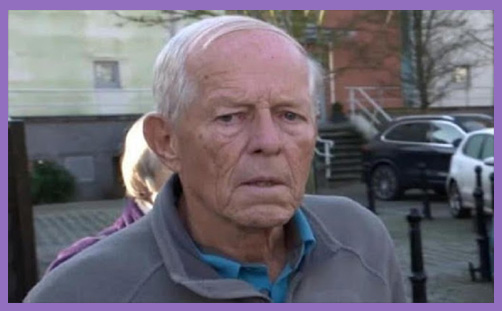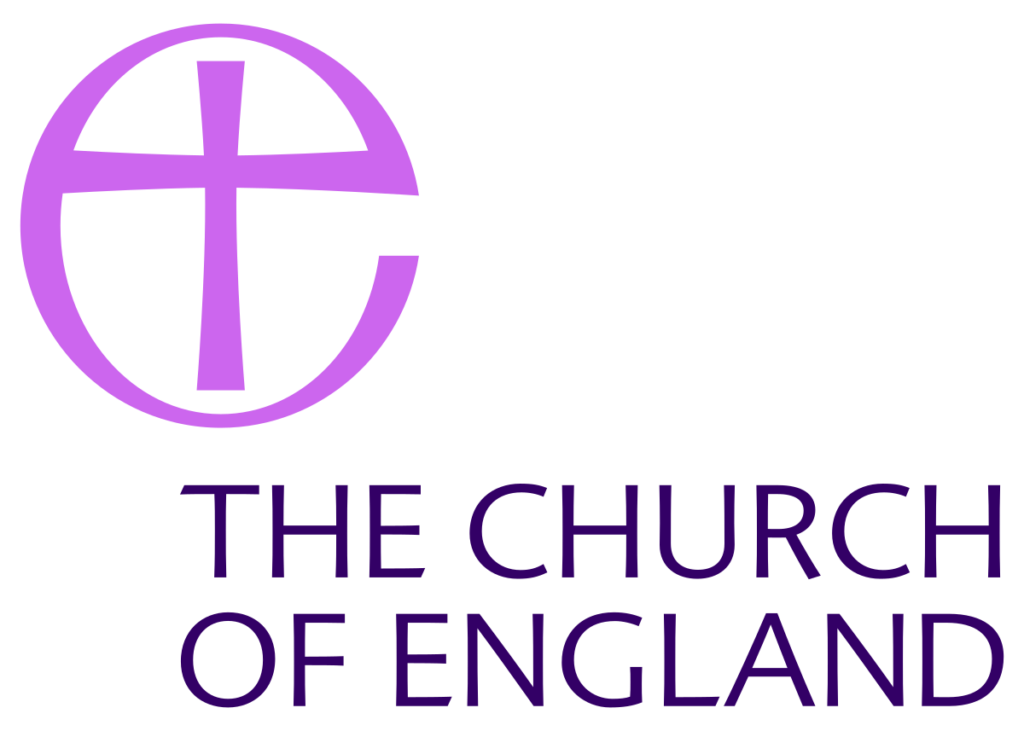by Janet Fife
There may be problems with some of the links in the glossary. If a link does not work, you can do a cut and paste and place the link in the search box. Apologies from the Editor whose technical savvy is limited.

Survivors and others who encounter the world of Church safeguarding find themselves in a maze of acronyms and organisations. Here’s my attempt to clarify the confusion (not least my own!), with particular reference to the Church of England. Readers are welcome to suggest additions and corrections in the comments below. Information on other denominations would be especially useful.
Authorised Listener
Some dioceses have an Authorised Listener scheme. An AL may be either a trained volunteer or a professional, and will listen supportively for a limited number of appointments.
Carlile Review
Lord Carlile’s review into the Church’s handling of a CSA complaint against George Bell, Bishop of Chichester 1929-58. Published in December 2017. https://www.churchofengland.org/sites/default/files/2017-12/Bishop%20George%20Bell%20-%20The%20Independent%20Review.pdf
Carter Review
Richard Carter was commissioned by Birmingham Diocese to review its handling of allegations against the Ven. Tom Walker. Completed in 2018 but never published; the survivor allowed to see a heavily redacted version only after signing an NDA.
CCPAS – Churches Child Protection Advisory Service
Now called Thirtyone:eight. See entry below.
CDM – Clergy Discipline Measure (Church of England)
- A legal Measure passed by the General Synod in 2003, under which clergy can be disciplined for serious misconduct. For the terms of the Measure: https://www.legislation.gov.uk/ukcm/2003/3/contents
- Procedure for making a complaint against a member of the clergy: https://www.churchofengland.org/about/leadership-and-governance/legal-service/clergy-discipline Revision of the CDM is under way.
Chichester Reports
A series of reports into the management of abuse cases in Chichester Diocese: https://safeguarding.chichester.anglican.org/documents/category/reports/
Core Group
A multi-disciplinary group set up to consider a safeguarding allegation.
CSA – Child Sexual Abuse
DBS – Disclosure and Barring Service (formerly CRB)
A check of police records and government lists to ensure a person is not barred from working with children or at-risk adults,
DNSA – Deputy National Safeguarding Adviser
DSA – Diocesan Safeguarding Adviser.
The member of staff in each diocese who advises the bishop and clergy on safeguarding matters.
DSO – Diocesan Safeguarding Officer.
IICSA recommended that DSAs be given the power to overrule bishops, rather than merely advisory, and the job title be changed to DSO. Not yet implemented.
Gibb Report – An Abuse of Faith, The Independent Peter Ball Review
In 2016 Dame Moira Gibb was commissioned by the CofE to review its handling of allegations against Bishop Peter Ball. The report was published in 2017. https://www.churchofengland.org/sites/default/files/2017-11/report-of-the-peter-ball-review-210617.pdf
Elliott Review
A 2015 review into the CofE’s handling of CSA allegations made against two prominent clergy. The Church commissioned CCPAS who appointed Ian Elliott to carry it out. https://www.churchofengland.org/sites/default/files/2017-11/Elliot%20Review%20Findings.pdf
IICSA – Independent Inquiry into Child Sexual Abuse (in England and Wales)
A statutory Inquiry opened in 2015 to discover how institutions in England and Wales managed their duty of care to protect children from abuse. There have been 15 investigations, some still ongoing, and a series of hearings, which have now concluded. It also runs the Truth Project. Information on IICSA: https://www.iicsa.org.uk
Reports into the Peter Ball case, Chichester Diocese, and the CofE: https://www.iicsa.org.uk/investigations/investigation-into-failings-by-the-anglican-church
Report into the Catholic Church: https://www.iicsa.org.uk/publications/investigation/roman-catholic-church
IPSS – Interim Pilot Support Scheme
A trial project for the planned redress scheme, to give practical support to survivors in ‘seriously distressed’ circumstances. Led by Jonathan Gibbs, the lead Bishop for Safeguarding. https://www.churchofengland.org/safeguarding/overview/news-and-views/unanimous-support-archbishops-council-safeguarding-proposals
ISVA – Independent Sexual Violence Advisor.
Some dioceses and many charities working with survivors have one or more ISVAs whose job it is to support the survivors. https://www.gov.uk/government/publications/the-role-of-the-independent-sexual-violence-adviser-isva.
John Smyth Review – see Makin Review
LADO – Local Authority Designated Officer.
The person who manages safeguarding allegations made against those working with children, and advises on safeguarding matters.
MACSAS – Minister and Clergy Sexual Abuse Survivors
A support service run by survivors, for those who have been sexually abused as children or adults by members of the clergy. https://www.macsas.org.uk
Makin Review – the John Smyth Review
Investigation into the Church’s handling of allegations against John Smyth, being carried out by Keith Makin and Sarah Lawrence. Due to report in 2021. https://www.churchofengland.org/safeguarding/overview/reviews-and-reports/john-smyth-review for the terms of the review
and http://survivingchurch.org/2019/09/18/keith-makin-and-the-smyth-review/ for comment.
NSA – National Safeguarding Adviser
NAPAC – National Association of People Abused in Childhood
Offers support to adult survivors of all kinds of childhood abuse and training for those who support survivors. https://napac.org.uk/what-napac-does/
NCI – National Church Institutions
The collective name for seven of the C of E’s central bodies. They are separate legal entities, so if submitting an SAR it’s necessary to know which one/s might have data on you. A separate SAR would be required for each.
Archbishops’ Council;
Bishopthorpe Palace;
Lambeth Palace;
Church Commissioners;
Central Services (HR, Finance & Resources, IT, Legal, Communications, Record Centre);
Pensions Board;
National Society for Promoting Religious Education.
NDA – Non Disclosure Agreement
Sometimes imposed on survivors as part of the terms of a settlement, or before they are allowed to read a review into their case. Not regarded as good practice, and now being phased out.
NSP – National Safeguarding Panel. Advises the CofE on safeguarding policy and strategy, and assess implementation. Panel members include an independent chair, representatives from the Methodist and Roman Catholic Churches, and three survivors.
Advises the CoE on safeguarding policy and strategy, and assesses how they are implemented. Works with the Methodist Church. The Panel has two survivor representatives.
NSSG – National Safeguarding Steering Group
Oversees the CofE’s national safeguarding, including the work of the NST; considers the advice of the NSP; considers reports of internal and external Reviews before publication, and monitors how recommendations are implemented; oversees the Church’s response to IICSA; reviews diocesan safeguarding audits and returns. Members are appointed by the Archbishops. https://www.churchofengland.org/sites/default/files/2017-11/NSSG%20Terms%20of%20Reference%20and%20Membership%20Nov%202017.pdf
NST – National Safeguarding Team
Develops and implements national policy; handles complex and high profile cases; commissions reviews; does national survivor support and engagement, co-ordinates independent diocesan safeguarding audits. https://www.churchofengland.org/safeguarding/promoting-safer-church
NSWG – National Safeguarding Working Group
Provides administrative support for the NSSG.
PCR – Past Cases Review (Safeguarding)
The PCR was commissioned in 2007 and released its results in 2010, listing only 13 outstanding safeguarding cases nationally. The Singleton Review of the PCR was published in 2018. https://www.churchofengland.org/news-and-media/news-and-statements/report-handling-past-cases-review
PCR2 – Past Cases Review version 2
A second review of past cases, with wider terms, is currently underway. https://www.churchofengland.org/safeguarding/reviews-and-reports/past-cases-review-2/past-cases-review-2-faq
Policy and Practice Guidelines – see https://www.churchofengland.org/safeguarding/policy-and-practice-guidance
PSA – Provincial Safeguarding Adviser (Lambeth)
Based in London, at the archbishop of Canterbury’s offices. Deals with the southern dioceses of the C of E.
PSA – Provincial Safeguarding Adviser (Bishopthorpe)
Based in York, at the Archbishop of York’s offices. Deals with the northern dioceses of the C of E.
PSO – Parish Safeguarding Officer
The person who leads safeguarding in a particular parish.
Review
Investigation and report into how a safeguarding case, or cases, has been handled. Sometimes called a Lessons Learned Review. For distinction between internal and independent reviews see here: https://thirtyoneeight.org/news-and-events/publications/together-magazine/2020-winter/winter-2020/internal-or-independent/
Safe Spaces
A free and independent support service for survivors of any kind of abuse, run by Victim Support on behalf of the Church of England, the Church in Wales, and the Catholic Church of England and Wales. Launched September 2020. https://www.safespacesenglandandwales.org.uk
SAR – Subject Access Request
Under UK law we have a right to know what personal data organisations store. The Information Commissioner’s Office (ICO) website gives advice on how to file an SAR. https://ico.org.uk/your-data-matters/your-right-to-get-copies-of-your-data/
SCIE – Social Care Institute for Excellence
A charity specialising in safeguarding, which works with churches and other bodies to conduct surveys and carry out reviews. https://www.scie.org.uk/safeguarding
Shemmings Report
A report of the review by David and Yvonne Shemmings into safeguarding failures in Chichester Diocese. https://safeguarding.chichester.anglican.org/documents/shemmings-report/
Singleton Report
Sir Roger Singleton’s review of the Past Cases Review, published 2018. https://www.churchofengland.org/news-and-media/news-and-statements/report-handling-past-cases-review
SRG – Survivors Reference Group
Organise safeguarding presentations to General Synod, contribute to policy, and have input into some appointments.
Survivors Voices
Works to engage the skills and expertise of survivors to improve the response to abuse. Run by and for survivors and their supporters. https://survivorsvoices.org
Thirtyone:eight – formerly CCPAS
An independent Christian safeguarding charity providing a range of support to churches and organisations, including training, reviews, and DBS service. https://thirtyoneeight.org
Truth Project
IICSA project n which survivors of CSA are invited to share their experiences and be listened to respectfully. It concludes in 2021. https://www.truthproject.org.uk/i-will-be-heard
Whitsey Review – A Betrayal of Trust
Review by David Pearl and Kate Wood into Chester Diocese’s handling of CSA allegations against Victor Whitsey, Bishop of Chester 1974-81. Published in October 2020 but withdrawn in November due to a legal issue. It will be re-issued in due course. https://www.churchofengland.org/news-and-media/news-and-statements/review-bishop-whitsey









